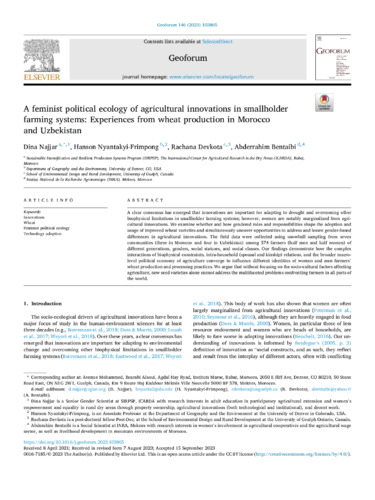A feminist political ecology of agricultural innovations in smallholder farming systems: Experiences from wheat production in Morocco and Uzbekistan
Abstract
A clear consensus has emerged that innovations are important for adapting to drought and overcoming other biophysical limitations in smallholder farming systems; however, women are notably marginalized from agricultural innovations. We examine whether and how gendered roles and responsibilities shape the adoption and usage of improved wheat varieties and simultaneously uncover opportunities to address and lessen gender-based differences in agricultural innovations. The field data were collected using snowball sampling from seven communities (three in Morocco and four in Uzbekistan) among 574 farmers (half men and half women) of different generations, genders, social statuses, and social classes. Our findings demonstrate how the complex interactions of biophysical constraints, intra-household (spousal and kinship) relations, and the broader macro-level political economy of agriculture converge to influence different identities of women and men farmers’ wheat production and processing practices. We argue that without focusing on the socio-cultural factors affecting agriculture, new seed varieties alone cannot address the multifaceted problems confronting farmers in all parts of the world.

